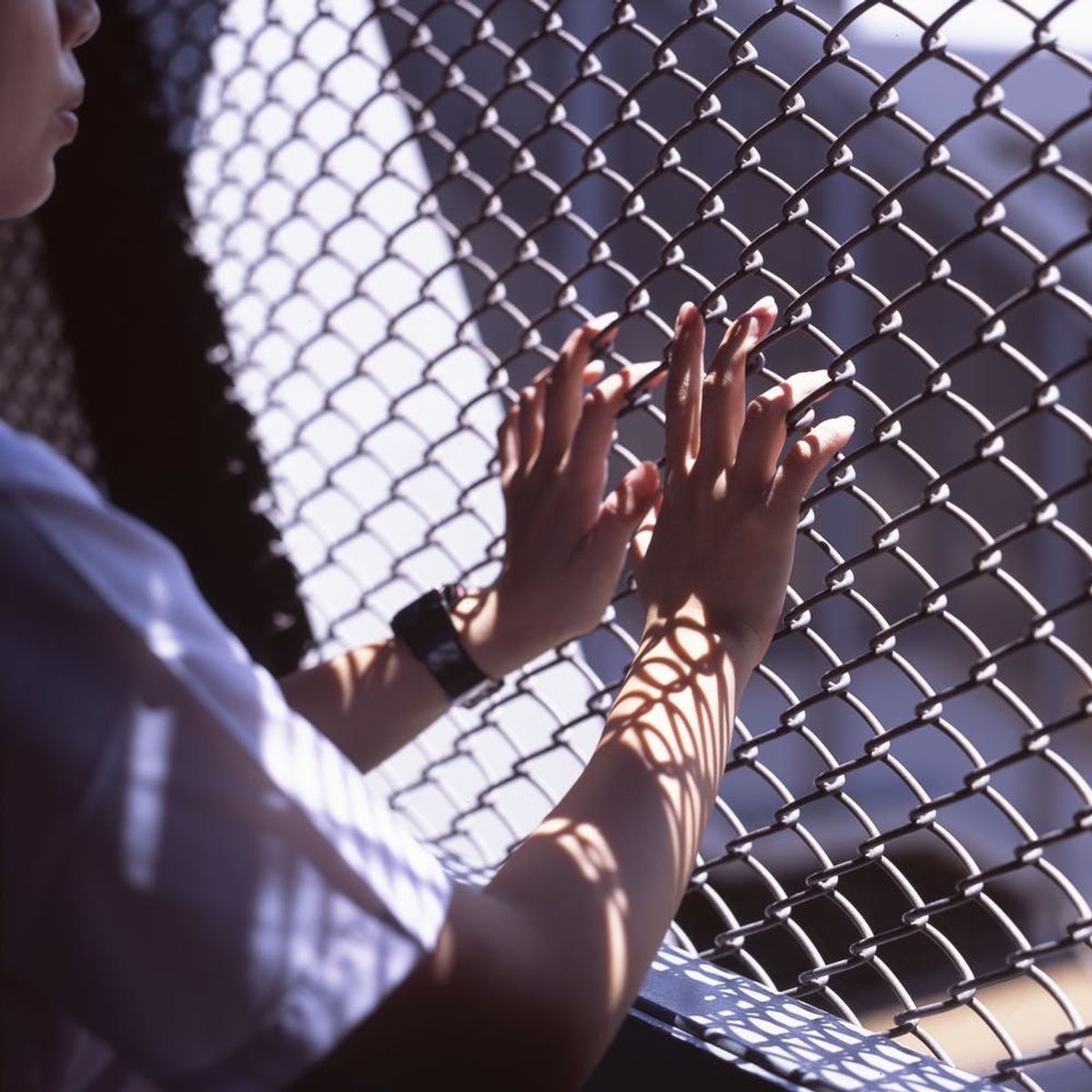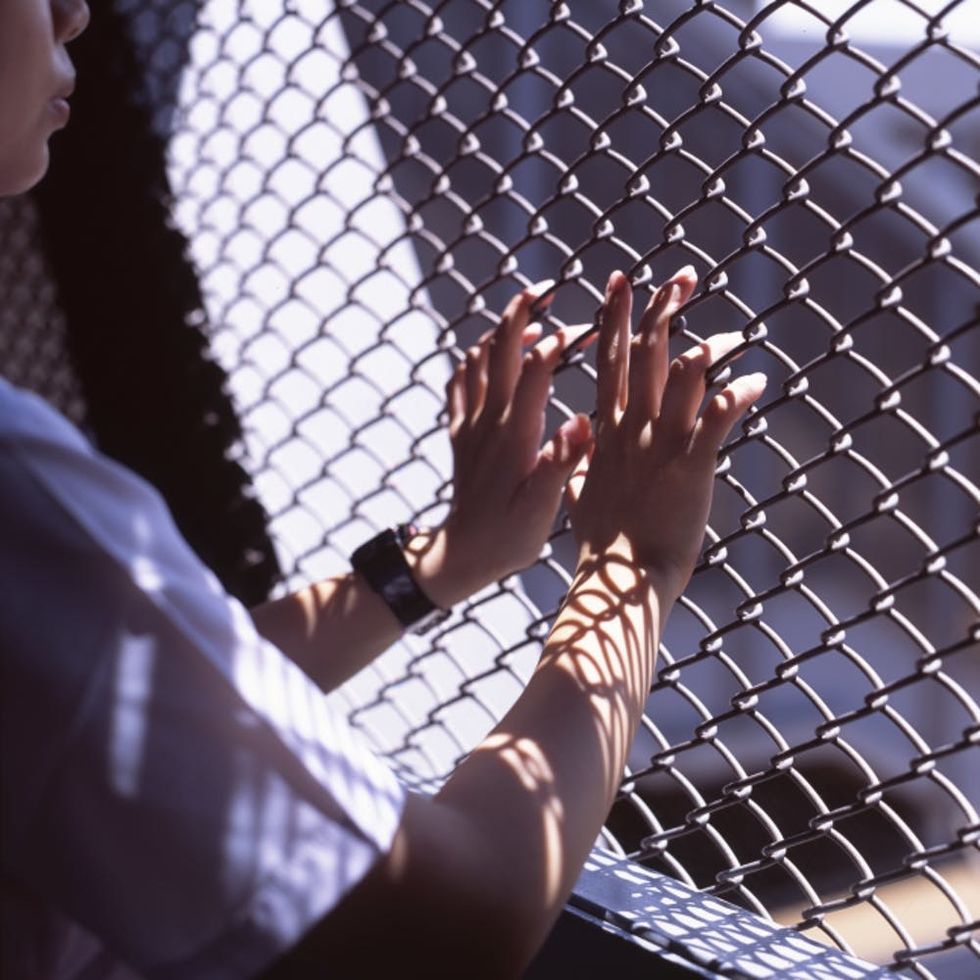Even in Prison, Women Are Treated Worse Than Men — and for the Same Reasons

A new report from NPR finds that women inmates are disciplined at higher rates than men. A closer look reflects unsettling double standards in the way people regard the behaviors of women and other marginalized people.
NPR’s investigation into disciplinary actions against women in prisons (conducted in partnership with Northwestern University’s Medill School of Journalism) found that incarcerated women are disciplined by guards more frequently — “often two to three times more often, and sometimes more” — than incarcerated men. What’s more, disciplinary measures can be taken against such vague perceived infractions such as “insolence,” which can amount to simply talking in a way a guard doesn’t like.
These disciplinary actions can take the form of revoked access to commissary items like food or even menstrual products, or loss of visitation and phone privileges — which, as NPR notes, affects women particularly harshly, given that more than half of women in prison are the mothers of children 18 or younger. Sometimes, discipline comes in the form of solitary confinement, even for reasonably minor infractions like “disobedience.”

Of course, “discipline” and abuse of all kinds are rife throughout prisons and jails, regardless of the gender of the population. However, highlighting the particular ways that prisons and jails treat transgender people and cisgender women also helps explain how prisons and jails replicate gendered abuse and discrimination.
While prison staff dole out more severe punishments to incarcerated women, the prison system itself already entirely restricts and restrains every aspect of incarcerated peoples’ lives. “Beyond even distinct disciplinary measures, prison is about remitting control,” Diana McHugh, director of communications for the Women’s Prison Association, tells Brit + Co. “When you sleep, when you wake up, when and what you eat, when the lights are on or off, none of that is up to a woman in prison.”
McHugh explains further that “prison only mimics the violence, isolation, and lack of control women have experienced before they arrive,” noting that many incarcerated women suffer from mental illness or addiction, and have experienced trauma and stress related to parenting.
“Nothing about prison helps them address those things,” McHugh says.
Incarcerated queer and trans people are particularly vulnerable, and are subject to unique forms of discrimination. According to a 2015 report based on a survey conducted by the LGBTQ+ prison abolition and advocacy group Black & Pink, 85 percent of the 1,200 incarcerated people in their membership said they had been held in solitary confinement. “Trans women, Two‐Spirit people, and cisgender gay men are put into solitary confinement against their will at the highest rates,” according to the report.
Trans people are also regularly incarcerated with a prison population that does not match their gender, because prisons typically decide where inmates should be housed based on the sex a person was assigned at birth, not based on gender.
While some states have changed this practice in recent years, trans people still face unique discrimination behind bars. Incarcerated trans people are frequently denied adequate medical care because of their gender. Further, trans people are more likely to be held in solitary confinement for long periods of time. This is supposedly to “protect” trans people from abuse, which they are subject to at much higher rates. However, prison abolition and reform advocates say that solitary confinement is torture (as does a United Nations expert), and does not protect anyone.
Sexual assault and rape are also common in prisons and jails, where guards have absolute authority over incarcerated people. When incarcerated people report sexual abuse from guards, prison officials have a record of making decisions in favor of the guard, leaving the person who reported vulnerable to acts of retribution from their perpetrators.
“If a woman is subjected to sexual misconduct or refuses sexual contact by a CO in prison, there is little she can do without fear of retaliation,” McHugh tells us.
She adds that women can be punished for speaking out about abusive guards in ways that impact their health and overall well-being. “Women report waiting hours for escorts to church that never come; missing family visits; being denied toilet paper, recreational time, meals, and much more,” McHugh says.
Prisons, jails, and detention centers are in themselves inhumane institutions, and only intensify the abuses that marginalized people already experience in the outside world. Disciplining people behind bars, who are already severely marginalized from the rest of society, does not facilitate healing or growth — it only further strips incarcerated people of their basic human rights.
What do you think? Tell us on Twitter @BritandCo.
(Photo via Getty Images)


















